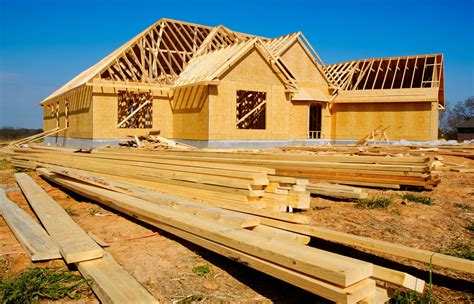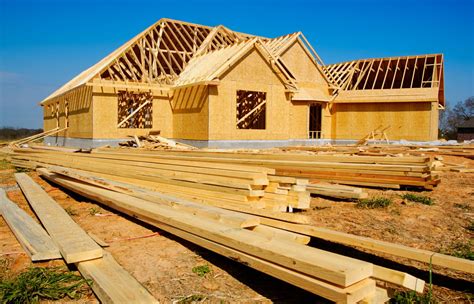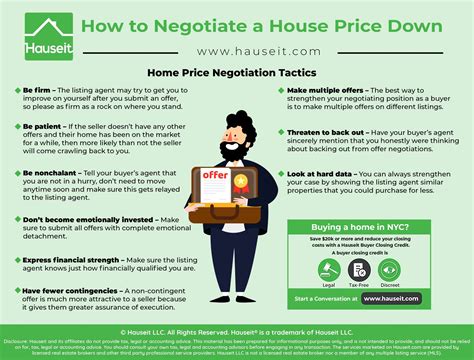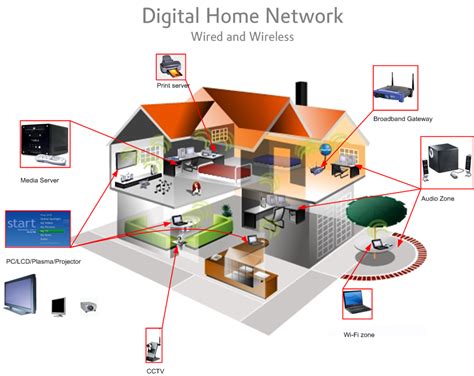- Conducting Market Research
- Developing a Business Plan
- Securing Financing
- Obtaining Necessary Licenses and Permits
- Establishing a Strong Network of Suppliers and Contractors
- Step 1: Identify Your Needs
- Step 2: Research Suppliers and Contractors
- Step 3: Build Relationships
- Step 4: Negotiate Prices
- Step 5: Maintain Your Network
Conducting Market Research
If you’re thinking of starting a home building business, conducting market research is one of the most important steps you can take. Market research will help you understand your target market, identify potential customers, and develop a plan to meet their needs.
Market research involves gathering information about your target customers, your competition, and your industry as a whole. You can do this by:
- Talking to potential customers
- Surveying your target market
- Analyzing your competition
- Researching industry trends and statistics
Talking to potential customers is a great way to learn about their needs, wants, and concerns when it comes to home building. You can do this by attending networking events, joining local business groups, and reaching out to individuals in your community. Ask them about the type of homes they’re interested in, what features are important to them, and how much they’re willing to pay.
Surveying your target market is another effective way to gather information. You can create an online survey or send out a questionnaire to potential customers. Keep in mind that your survey should be short and to the point, and should focus on questions that will give you meaningful feedback.
Analyzing your competition is also important. Find out who your competitors are in your local area, and research their strengths and weaknesses. Look at their pricing, their marketing tactics, and the types of homes they build. This will give you a better idea of how you can differentiate yourself in the marketplace.
Finally, it’s important to research industry trends and statistics. This will give you a better understanding of the overall health of the home building industry, as well as the opportunities and challenges that lie ahead. You can do this by reading industry publications, attending trade shows, and talking to other professionals in the industry.
By conducting market research, you’ll gain valuable insights into your target customers, your competition, and your industry. This information will help you develop a solid business plan, set realistic goals, and make informed decisions as you grow your home building business.
Developing a Business Plan
Developing a business plan is a crucial step for any aspiring entrepreneur. It is a roadmap that outlines the vision, mission, and goals of the business. A business plan should clearly define the products or services offered, target market, pricing strategy, marketing plan, financial projections, and staffing requirements. In this article, we will go into further detail about developing a business plan for a home building business.
Firstly, it is important to identify the niche of the home building business. Do you want to specialize in building custom homes, modular homes, or prefabricated homes? Once the niche has been identified, it is essential to research the market and competitors to identify gaps and opportunities. This research will inform the business plan and help develop a unique value proposition to stand out in the market.
The next step is to consider the legal and financial aspects of the business. This includes registering the business with the relevant authorities, obtaining any necessary permits and licenses, and selecting a suitable legal structure for the business. The financial aspects must also be taken into account, such as the initial capital requirements, operating expenses, and revenue projections.
It is vital to define the products or services offered by the home building business clearly. This includes creating a portfolio of past projects, identifying the target market, and developing a pricing strategy. The pricing strategy should be based on industry standards and consider the costs of materials, labor, and overhead expenses. It is important to strike a balance between affordability for clients and profitability for the business.
The marketing plan should also be included in the business plan. This includes identifying the target market, creating a brand identity, and developing a marketing strategy to reach potential clients. The marketing strategy should consider both traditional advertising methods and digital marketing approaches such as social media and website optimization.
The staffing requirements of the home building business should also be considered in the business plan. This includes identifying the key roles and responsibilities required, defining the recruitment process, and establishing an employee management plan. It is important to ensure that the business has access to the necessary skill sets and experience to operate effectively.
Furthermore, the financial projections should be included in the business plan. This includes revenue projections, cash flow statements, and balance sheets. The financial projections should be based on realistic assumptions that take the market conditions and operating costs into account. A well-prepared financial plan will help secure investment or financing from potential lenders.
In conclusion, developing a business plan is a crucial step for starting a home building business. It should clearly define the products or services offered, target market, pricing strategy, marketing plan, financial projections, and staffing requirements. The business plan is a roadmap that outlines the vision, mission, and goals of the business and is essential for securing investment or financing. With a well-structured business plan, an entrepreneur can set their home building business up for success.
Securing Financing
Starting a home building business requires a significant amount of capital. To ensure that you have the necessary funds to get your business off the ground, you need to secure financing. There are several ways through which you can obtain financing to start your business. In this section, we will discuss some of the most popular financing options.
1. Personal Savings
One of the most common ways to finance a new home building business is to use your personal savings. This option is ideal if you have been saving for a long time and have accumulated a significant amount of money. Using your personal savings to finance your business is a good option because you will not have to pay any interest on the amount you borrow. However, it is essential to ensure that you leave enough money in your savings to cover your personal expenses.
2. Bank Loans
Bank loans are another popular financing option for new home building businesses. You can obtain a bank loan by applying to a bank or a financial institution. Banks offer different types of loans, such as business loans and personal loans. When applying for a bank loan, you will need to provide proof of income, credit history, and a business plan. The bank will use this information to determine whether you qualify for a loan and how much you can borrow.
3. Investors
Investors are individuals or companies that provide capital to businesses in exchange for ownership or a percentage of the business’s profits. If you are unable to secure a bank loan or do not want to borrow money, you can seek out investors to finance your home building business. Investors can be family members, friends, or other individuals interested in your business. It is essential to provide potential investors with a business plan that outlines your business strategy, financial projections, and expected returns.
When seeking out investors, it is essential to be aware of the legal implications of taking on investors. It is important to have a lawyer draft an investor agreement that outlines the terms and conditions of the investment, including the percentage of ownership, the return on investment, and the duration of the investment. This agreement will protect both you and your investors.
4. Crowdfunding
Crowdfunding involves raising funds for a business through small contributions from a large number of people. Crowdfunding is a popular option for startups and small businesses that have difficulty obtaining traditional financing. There are several crowdfunding platforms available, such as Kickstarter and Indiegogo, which allow you to pitch your business idea to potential investors.
With crowdfunding, you will need to provide a compelling pitch that outlines your business idea, its potential, and why people should invest in your business. You will also need to provide rewards or incentives to encourage people to invest in your business.
Starting a home building business requires a significant amount of capital, and securing financing is essential. There are several financing options available, including personal savings, bank loans, investors, and crowdfunding. It is essential to explore all options and determine which option is best for your business. Remember to consult with a lawyer and financial advisor before making any significant financial decisions.
Obtaining Necessary Licenses and Permits
Starting a home building business is an exciting venture, but it also requires a lot of paperwork. Obtaining necessary licenses and permits is essential and can be a complex process if you’re not familiar with the required documentation. Here’s a step-by-step guide that will help you acquire all the licenses and permits you need.
Step 1: Determine Your State’s Requirements
The requirements for home building licenses and permits vary from state to state. You can obtain information on the required permits and licenses from your state or local government office. They can provide you with a list of licenses and permits that you need to acquire, the application process, and any fees involved.
Step 2: Obtain a Home Building Contractor License
Most states require home building contractors to obtain a license. You’ll need to complete an application process that includes providing a proof of insurance, bonding, financial information, your business structure, and paying a fee. It may also require passing an exam or completing a certain number of training hours. The application process may take some time, so it’s essential to give yourself plenty of time to complete the paperwork.
Step 3: Obtain Specialty Licenses
Some states require a specialty license for specific areas of home building, such as plumbing or electrical work. You’ll need to determine if your state requires a specialty license for your type of home building business. If so, you’ll need to complete the application process for a specialty license. The process is typically similar to the home building contractor license application process, and you’ll need to provide proof of insurance, bonding, and financial information.
Step 4: Obtain Building Permits
Once you’ve acquired all the necessary licenses, you’ll need to obtain building permits before beginning construction. Building permits vary depending on the scope of the work you’ll be doing, but they typically include information on the type of work you’ll be doing, the location of the building, and the expected time frame for completion. You can obtain building permits from your local government office or department responsible for building permits.
Building permits are crucial as they ensure that the construction is safe and meets your state’s building codes and standards. Failure to obtain the required building permits can result in fines, legal action, or even having to demolish the structure.
Step 5: Renew Your Licenses and Permits
Most state licenses and building permits need to be renewed annually or biannually, depending on the state’s requirements. As a home builder, you need to stay up to date with any changes in requirements, and it’s your responsibility to renew your licenses and permits promptly. Failing to renew your licenses and permits can result in penalties, fines, and in some cases, revocation of your license.
Starting a home building business requires a lot of hard work, dedication, and patience. Ensuring that you have the necessary licenses and permits is the first step in building a successful business. Acquiring the required licenses and permits can be challenging, but it’s essential to ensure that you’re in compliance with all the regulations and standards. Obtaining all of the necessary licenses and permits may be time-consuming, but it’s essential to keep your business running legally and efficiently.
Establishing a Strong Network of Suppliers and Contractors
If you want to start a home building business, you need to establish a strong network of suppliers and contractors. These are the people who will provide you with the materials and services that you need to build your homes. Building and maintaining relationships with these suppliers and contractors is key to the success of your business.
Here are five steps to help you establish a strong network of suppliers and contractors:
Step 1: Identify Your Needs

The first step in establishing a strong network of suppliers and contractors is to identify your needs. You need to know what materials and services you need to build your homes. You can do this by creating a list of the materials and services you need and then finding suppliers and contractors who can provide them. This will help you to narrow down your search and find the right suppliers and contractors for your business.
Step 2: Research Suppliers and Contractors

The next step is to research suppliers and contractors in your area. You can start by searching online for suppliers and contractors who specialize in the materials and services you need. Check their websites and read reviews from past customers. You can also ask for recommendations from other builders or contractors in your network. Once you have a list of potential suppliers and contractors, you can contact them to learn more about their products and services.
Step 3: Build Relationships

Building relationships with your suppliers and contractors is crucial for the success of your business. You need to communicate with them regularly and keep them updated on your project needs. This will help them to better understand your business and provide you with the best possible service. You can also offer incentives for loyal suppliers and contractors such as early payment or referrals. This will help to build trust and a strong working relationship.
Step 4: Negotiate Prices

Once you have established a working relationship with your suppliers and contractors, you can start to negotiate prices. You should always try to get the best possible price for the materials and services you need, without sacrificing quality. You can do this by asking for quotes from multiple suppliers and contractors and comparing them. You can also negotiate bulk discounts or long-term contracts to secure lower prices.
Step 5: Maintain Your Network

Finally, it is important to maintain your network of suppliers and contractors. You should communicate regularly with them and keep them updated on your business needs. You can also attend industry events and trade shows to meet new suppliers and contractors and learn about new materials and services. By maintaining your network, you will always have access to the materials and services you need to build your homes.
Establishing a strong network of suppliers and contractors is essential for the success of your home building business. By following these five steps, you can find the right suppliers and contractors for your business and maintain a strong working relationship with them.
